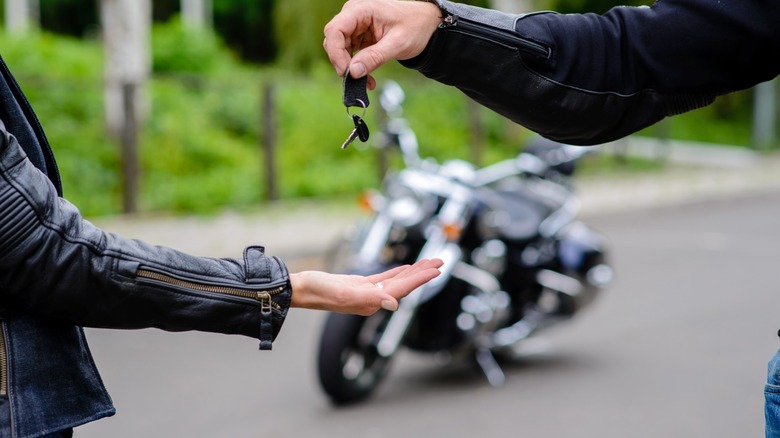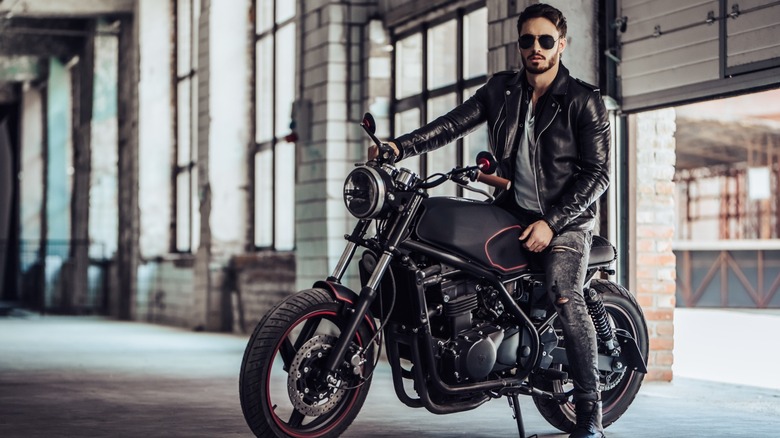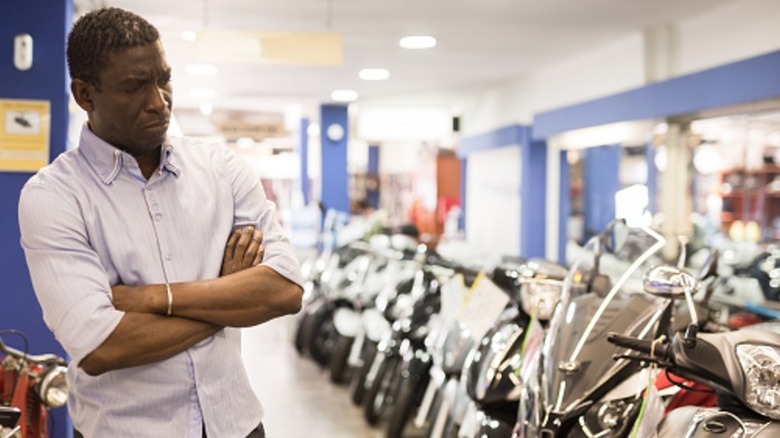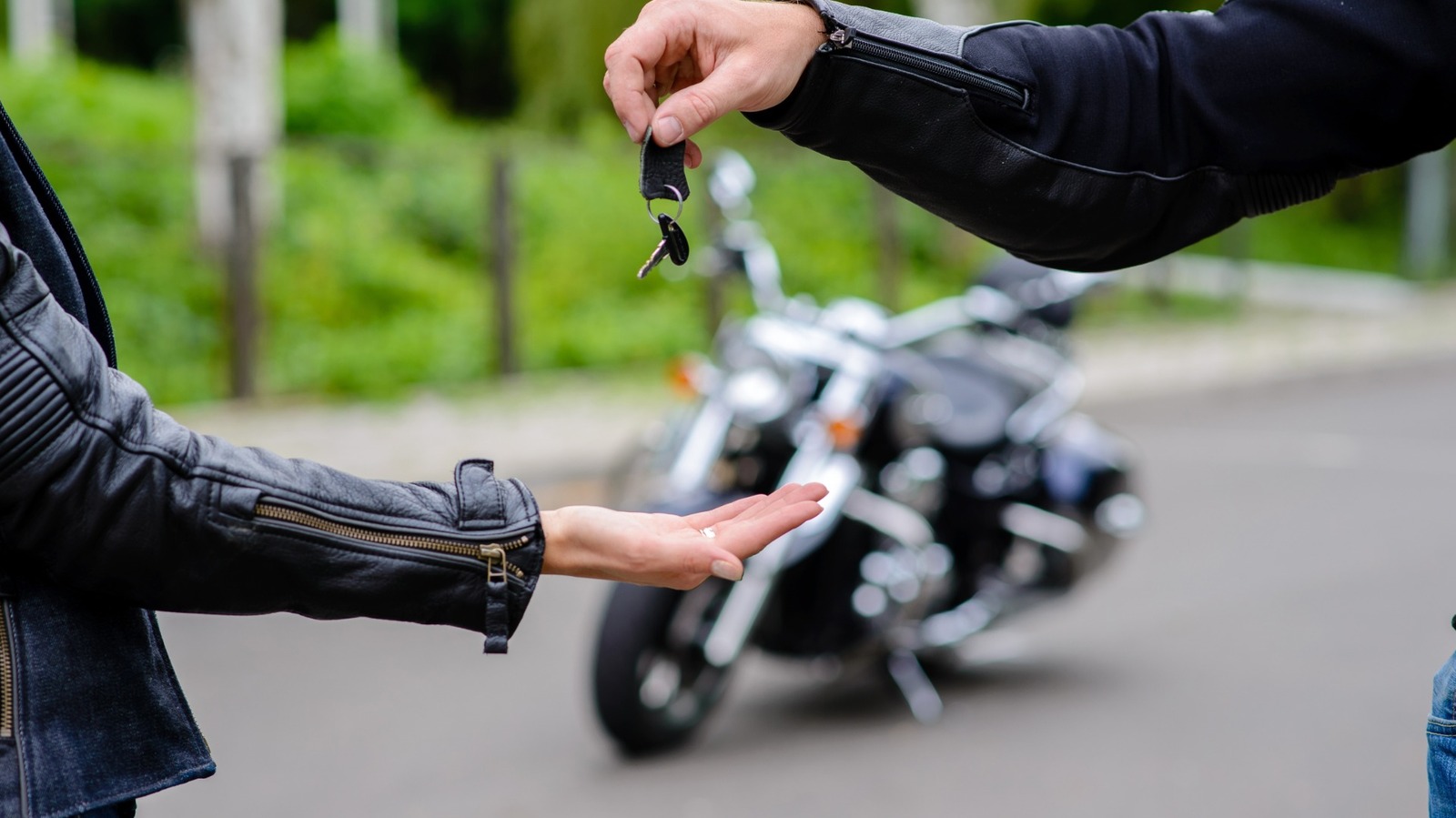 SFROLOV/Shutterstock
SFROLOV/Shutterstock
Buying a brand-new motorcycle is not an easy feat. If you were to go shopping for one now, you'll spot options ranging from the $30,000+ 2025 Indian Chieftain PowerPlus and the $27,000 Harley Davidson Street Glide,to the $7,000 Honda Rebel 500. However, once you switch your focus to the classifieds, you will find that shopping for a used motorcycle under $5,000 is possible. Buying a used motorcycle might be cheaper up front, but there are several hurdles you have to jump over in the process.
That said, the consensus among riders seems to be that buying a used bike offers a few advantages than getting one fresh off a dealer's lot. There is also a cost upside, after you factor in purchase price, insurance, and depreciation — so much so that what you lose in mileage tends to balance out with the thousands of dollars you get to save.
Still, buying used isn't all sunshine and open roads. Unlike cars, motorcycles record their history through subtle tells, which is why hidden damage plagues the used market. They are easier to crash and repair poorly than cars, so buying used usually comes down to how well you play detective, how comfortable you are taking on the risk, and how much you care about the brand-new shine of a new bike.
The arguments in favor of buying used
 Vasyl Dolmatov/Getty
Vasyl Dolmatov/Getty
While there are many things you need to know before buying a used motorcycle, the biggest pro for many riders when buying used is the cost. The financial logic when you consider deposits, depreciation, and insurance is very compelling. Ordinarily, with a used bike purchase, you have a limited budget and try to make the most of its value.
Some riders report that buying used usually means they can pay in cash and avoid expensive insurance premiums in the process. It makes perfect sense since buying a new one would mean overpaying on interest for a bike that starts to lose value the second you take it out of the dealer's showroom.
This is why experienced riders advise new riders to buy a well-maintained and reliable used bike for cheap rather than a brand new one. That way, they get to save using insurance no claim bonuses, and are also at liberty to drop the bike as many times as possible without accruing huge expenses and insurance liabilities on repairs.
One Reddit rider, u/Levonix, summed it up perfectly in a post on r/motorcycle, stating that: "You're likely going to drop it as a beginner ... Once you know how you feel riding, you will likely have a better sense of what long-term, new, or forever bike you really want. Then you can also safely test ride multiple when that time comes. Save yourself the headache and buy used."
The arguments against buying used
 Jackf/Getty
Jackf/Getty
On the flipside, buying a used bike means you must also be willing to spend time researching it, inspecting it, and maybe even doing some maintenance work on it. These might be a strong suit of experienced riders, but for beginners, the biggest risks with buying used are the problems not seen in a sales photo. You'll have to look for signs of accidents or theft, and that dreaded hidden "major service soon" that can make a cheap bike cost you dearly.
Also, a used bike may be missing some modern safety features or use outdated tech, especially if it's an older model. There's also the uncertainty of resale as a used bike dips in value when it has gone through heavy modifications or suffered damage.
If you inherit the problems of a used bike, you'll want to absorb the cost of repairs and then try to recoup when you sell, but this isn't always the case. This is why many riders advise that the condition of the bike and habits of a used bike's previous owner matter more than the mileage clocked on the bike itself. A high-mileage, regularly maintained bike is a safer bet than one with low mileage and a spotty maintenance record.
So, if you want minimal risk, modern safety features, and a secure warranty, buying used is not the best way to go. Steer clear, even if you're an experienced rider, shopping for a major touring bike or looking to use it in extreme conditions, since you'll require first-rate reliability.


